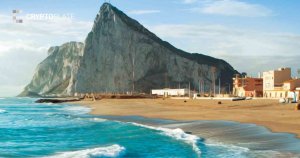 The Worst Question To Ask When Starting An ICO
The Worst Question To Ask When Starting An ICO The Worst Question To Ask When Starting An ICO

Photo by Clay Banks on Unsplash
Since the rise of altcoins and the evolution of legacy-coins over the last eighteen months, one platform, in particular, has become a hotbed of the new found “experts”: LinkedIn.
This article is neither sponsored nor is it meant to be considered as legal advice.
Regardless of your personal feelings on LinkedIn and how it serves as a “professional networking site” the reality is that now a huge number of people seem to have become “experts”, “Advisors”, “Futurists”… This list goes on and on.
Truth be told, it’s now quite comical to see the people I actually advised as little as 12 months ago, now telling people they are “Cryptocurrency experts.” The truth of the matter is 12 months ago they didn’t know what ERC20 was, let alone how to run an ICO. You know who you are.
With this new found “specialty” one question keeps being raised time after time in an attempt to raise the profile and find out public opinion. “Where is the best jurisdiction to run your ICO from?”
It is also the number one question we get asked for calls with prospective clients. Often, with the expectation that this information will just be passed over freely.

Inevitably, with such a status being posted on LinkedIn, a number of answers (sometimes hundreds) follow, all proclaiming the best jurisdiction.
The shouting match that evolves usually includes the big players; “Singapore”, “Switzerland”, “Estonia,” etc.
If nothing else, the cryptocurrency boom has certainly improved peoples overall knowledge of geography.
For a moment I pause, I consider actually writing a response however it just seems like such an unnecessary waste of time. Not that I don’t like engaging with the community, it’s just if an “expert” wants to give away free advice, who am I to step in and say if it is wrong or not?
However, if anyone needs, they can just look at “ICO rating sites” which I am informed gives you a great idea of how good these “experts” are. Spoiler: these rating sites are exactly like any other rating site – if your check clears, you get to the top. So feel free to ask them if you need.
However, as I am a huge fan of the cryptocurrency industry, and strongly believe in everything that decentralized technology stands for, I have a true belief that it will change the world for the better. So, in that vein, I will reveal the answer to the most asked question “what is the best jurisdiction to conduct an ICO.”
Drumroll, please.
The answer is both simple and complex. Really, it depends on everything to do with your ICO. By this I mean, how much you want to raise, what your token does, how you will target the U.S. Market, and so on.
Let me give you some examples:
If you are raising a small amount, hit Estonia. Why? The Estonia finance ministry has said that ICO’s under 2.5 million Euro’s are not classed as securities. Those over that amount can be, and will most likely need to be registered.

If you want to keep eyes off your books, avoid Switzerland. Why? The Swiss Financial Regulatory Body has made it clear that all ICO’s conducted from their jurisdiction will be examined.
So to those who shout “ZUG!” When answering the jurisdiction, first explain to people that the Swiss authorities will have the power, and exercise, going through their books.
Want a license to give you credibility? Gibraltar. Pay the money and get awarded a license. It looks great and can give you more credibility. However, avoid third parties looking to help you do this claiming they can help you jump the line. They cant.

You see, the answer is this: any seasoned, professional expert will never shout one jurisdiction at you. Not even two. They will need to know more about your project before they can even begin to understand how or where it should be run from. It’s the number one reason why localized consultants will never be able to deliver true results during an ICO.
Consequently, I now just look at these lists of people responding on LinkedIn profiles as those who have either a limited or no understanding of the ICO market and exactly how complicated it is.
The moral of the story is this: if you are serious about conducting an ICO, you need to consult experts. Not a local lawyer who will only suggest their jurisdiction to you, but a truly international company that has global exposure and understands the whole landscape. In my experience, it is the difference between a $5 and a $50 million dollar raise.



 Farside Investors
Farside Investors 


 CoinGlass
CoinGlass 






















































































